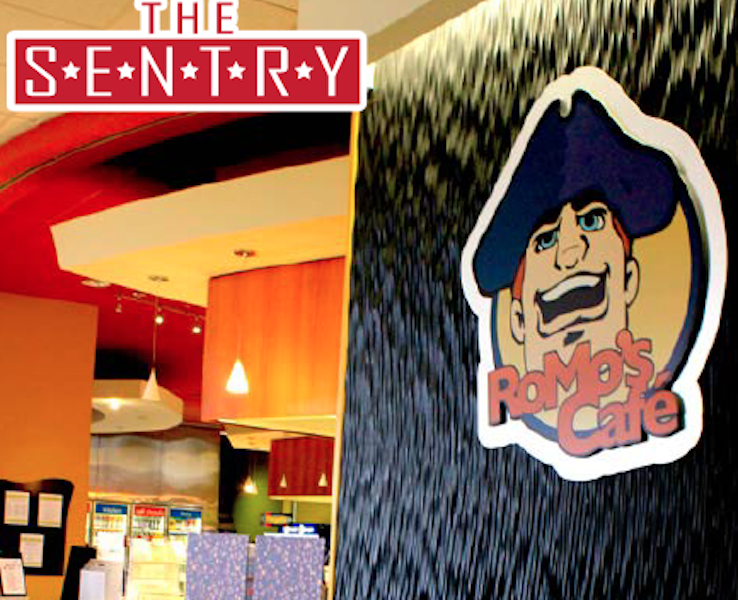Robert Morris University students are finding that they have a little less to spend on meals this semester. On a campus where having to do bulk orders to break even at the end of a semester is relatively common, how could this be possible?
The answer is most likely an $100 increase in the Dining Service Fee that is attached to all RMU student meal plans.
According to the breakdown of student meal plans on the RMU website, from 2010-2011, a $250 Dining Service Fee was charged, excluding the Commuter Meal Plan, which only has a $10 fee. This academic year, according to the 2011-2012 meal plan breakdown on RMU’s website, that fee was raised to $350, which again excludes the Commuter Meal Plan Fee, which stayed at $10.
With RMU’s 1,669 residential students in 2011, the $250 dining service charge generated $417,250. Now, with the increased charge and resident student population, which this year, according to the Office of Residence Life, is 1,788, RMU is pulling in $625,800 from this fee.
So why the increase now after the Dining Service Fee has remained at $250 since 2006, according to RMU’s Senior Director of Business Operations Neal Binstock?
RMU’s website states, “The [Dining Service Fee] covers maintenance, ongoing enhancements and operating costs associated with providing dining services.” Thus, Binstock said the answer for the increase now is the renovations to the Hale Cafe, Romo’s Cafe and the Food Court that have taken place since 2006.
“We needed to [raise the fee] this year primarily because of the Food Court and just things catching up to us in terms of major renovations. With renovations comes more equipment. With more equipment comes more maintenance costs and services costs,” Binstock explained. “And again it’s not about the university or Parkhurst trying to make money. It’s trying to maintain at least the status quo in terms of customer service to students.”
In addition to the increased charge, the spendable amount, which excludes the Dining Service Fee, actually decreased slightly in order to compensate for the $100 Dining Service Fee increase.
Aside from the Revolutionary and Commuter Plans, which remained the same from 2011-2012, on average, the spendable amount decreased by $22.50 or 1.56 percent. While that may not seem like much, one must also take into account the rise in food prices, which Binstock said usually increase 2.5 to 3 percent each year.
Binstock explained that several factors are taken into account when setting the food prices each semester. Parkhurst looks at the Producer Price Index (PPI), a program that measures the average change over time in the selling prices received by domestic producers for their output, and then suggests a price to RMU. RMU’s Business Operations then reviews the suggested prices and sets the final prices.
When the entire meal plan amounts are looked at, the average weighted increase of 3.8 percent occurs each year, explained Binstock. So, while students have less to spend, the overall amount does increase each year. This year just happened to increase more so because of the fee than the spendable amount.
Why then not increase the spendable amount along with the Dining Service Fee?
“The objective here is to not have that big hit to the student. Money is tight. We know the economy is recovering slowly,” explained Binstock. “I wouldn’t be doing my job if I wasn’t pushing for an increase that at least kept us at neutral or neutral plus a couple percents.”
Thus, in order to keep the overall percent increase reasonable, the spendable amount was slightly decreased this semester (see graphs below for a complete breakdown).
“We are not in this to make money, so our objective is to keep increases as low as possible,” stated Binstock. “If you do not have modest increases in meal plan rates, you begin to fall behind….We try to keep it as low as possible but high enough to offset expenses.”
Binstock also encouraged students with concerns to attend the Student Dining Services Committee Meetings held in the Food Court at 6 p.m. every other Tuesday. The next meeting will be held on Nov. 13. Or simply send an email with suggestions or concerns to [email protected].
DID YOU KNOW?
When you add Colonial Cash to your Freedom Card and use it instead of your debit or credit card you save money! If you pay with Colonial Cash, the seven percent sales tax is not added on to the total.









